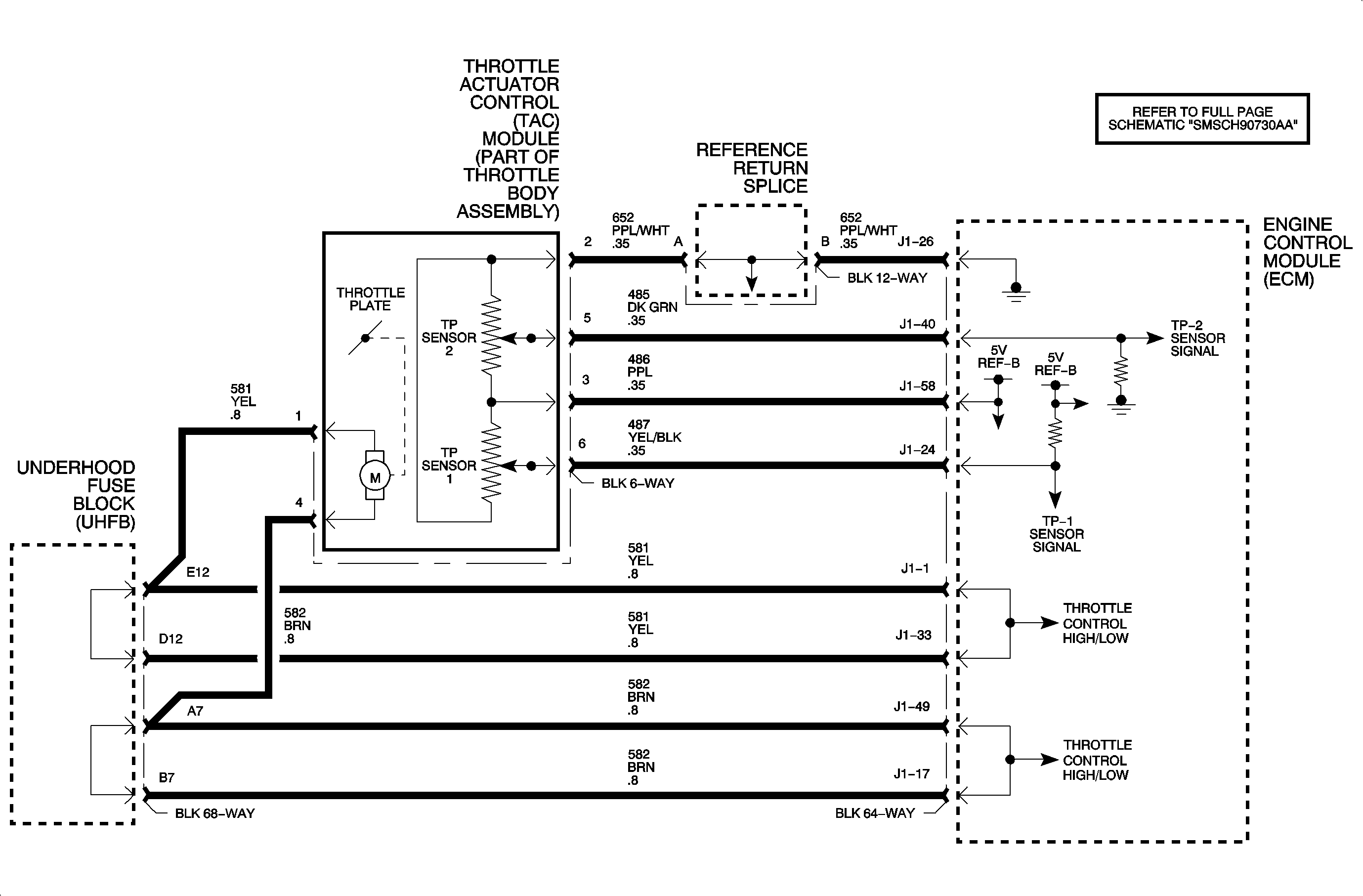
Circuit Description
The throttle actuator control (TAC) module contains 2 throttle position (TP) sensors with a common 5-volt supply, a common ground, and 2 independent signal circuits that vary resistance according to changes in throttle plate position. The engine control module (ECM) measures the signal voltage from each TP sensor, which is a reduced value of the ECM 5-volt reference. As the throttle plate opens from 0 percent throttle to wide open throttle (WOT), the voltage on TP sensor 1 signal increases from 0.4-4.35 volts, while the voltage on the TP sensor 2 signal decreases from 4.55-0.60 volts. DTC P0221 sets when the TP sensor 2 and TP sensor 1 signals are out of correlation, and TP sensor 2 signal indicates too large of a difference in throttle angle based on the mass air flow (MAF) sensor signal.
Conditions for Setting the DTC
DTC P0221 will set if the TP sensor 2 signal voltage is not rational when:
| • | TP sensor 2 and TP sensor 1 signal voltages are out of correlation by greater than 6.25 percent for longer than 140 ms, while TP sensor 2 signal voltage differs from the MAF sensor signal voltage by greater than 13 percent for longer than 400 ms. |
| • | The battery voltage greater than 7 volts. |
| • | DTC P0222 or P0223 has not been set. |
DTC P0221 diagnostic runs continuously once the above conditions have been met.
Important: The MIL will only illuminate if the fault is present for longer than 5 seconds, 2002 only.
DTC P0221 is a type A DTC for 2002, and type B DTC for 2003.
Diagnostic Aids
Important: If DTC P0121 is also set, resistance may exist in the 5-volt Ref-B circuit 486 or reference return circuit 652. Check for corrosion and for loose or spread terminals.
A skewed TP sensor 2 can set this DTC. Monitor the voltage range of the sensor using THROTTLE ACTUATOR CONTROL in the SPECIAL FUNCTIONS section of the scan tool, which will command the throttle actuator control module to move the throttle plate. The approximate (+/- 0.1) TP SENSOR 1 vs TP SENSOR 2 voltages should be:
TP Sensor 1 | -- | TP Sensor 2 |
|---|---|---|
0%/0.50 volts | = | 4.45 volts |
7%/0.82 volts | = | 4.17 volts |
25%/1.4 volts | = | 3.55 volts |
50%/2.45 volts | = | 2.55 volts |
75%/3.3 volts | = | 1.65 volts |
100%/4.25 volts to 4.60 volts | = | 0.70-0.17 volts |
Important: The ECM will remain in these conditions for the entire ignition cycle even is the fault is corrected.
Important: The TP ANGLE on the scan tool is based off of TP sensor 1 only.
If a TP sensor 1 signal circuit fault is detected, the ECM will default to REDUCED POWER mode if vehicle speed is below 56 km/h (35 mph) with the APP angle at 0 percent. Otherwise when the circuit fault occurs, TP sensor 2 will be used and vehicle performance will not be affected.
